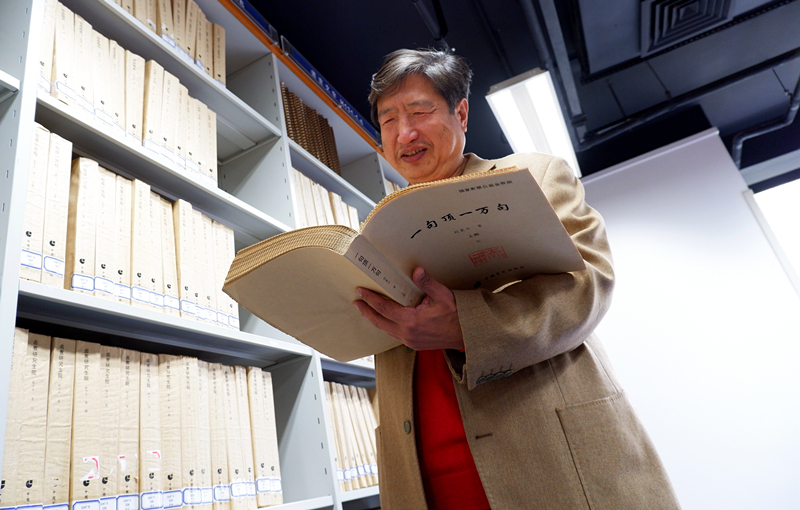No sight, but still on the lookout for love
By Li Lei | China Daily | Updated: 2018-11-29 09:07
Editor's note: This is the second of a series of stories about developments in the lives of China's blind and visually impaired community.

Parental concerns are a hurdle for visually impaired people wanting to form relationships.
While living in perpetual darkness cannot stop visually impaired people from reaching out for love, other people's opinions can. That's a lesson Liang Jiangbo learned in adolescence.
In 2002, while studying at a middle school for blind and visually impaired children in Nanjing, Jiangsu province, the then 16-year-old received a letter in his capacity as class monitor. He opened the letter, which was written in Braille, and discovered that it was from a blind girl in his home province of Anhui, asking about the curriculum and life on campus.
Liang replied in detail, and the two quickly became pen pals and later classmates.
Though the pair never knew what the other looked like, the congeniality and companionship they felt quickly turned into something more than friendship. They arranged to apply together for a prestigious blind high school in Qingdao, Shandong province, and hoped to later study at the same college.
Their intimacy quickly spread around campus and became obvious to Liang's parents, who were more concerned about the inconvenience that could arise from the union of two blind people than fears that the relationship would affect their studies.
Liang's parents even went so far as to tell him about the difficulties a blind couple would face when their parents were too old to care for them, and how their children might be bullied for having blind parents who could only offer limited assistance.
Gradually, barriers grew between the pair and they broke up before graduation.
"We were both worried by what other people said, and our relationship was affected," said Liang, who is now a Braille proofreader with the China Braille Press in Beijing. "I went on to high school in Qingdao and later to Beijing for college, whereas she chose not to, as a sign of severing ties with me."
Liang is one of a large number of visually impaired people who have been encouraged to downplay the importance of true love and marry partners with better vision. Blind and visually impaired people are categorized as the most vulnerable among disabled people, and are told that they will only make it through life if they marry a sighted person.
Influenced by such opinions, visually impaired city dwellers choose to marry sighted rural residents who want urban hukou - household registration - to make their lives easier. Though some relationships turn out to be good matches, large numbers of these utilitarian unions do not last long, according to experts.
























